If you are a small business owner, you need to ensure that your website is secure and to not just forget about your website. Website security requires cautiousness in all parts of web architecture and utilization. This initial article will not make you a site security master, yet it will assist you with getting where dangers come from, and how you can deal with and solidify your web application against the most widely recognized assaults.
Website security is any action or application taken to guarantee site information isn’t presented to cybercriminals or to prevent exploitation of sites in any capacity. In this blog we will discuss some of the security threats your website may face and then some essential steps you can take to improve your websites safety.
Security Threats
SQL Injection
Structured Query Language, also known as SQL, Injection allows an attacker to manipulate and interfere with the queries that a website can make with its database. This allows attackers to view data that they are normally not able to retrieve compromising the back-end infrastructure allowing them to preform denial-of-service attacks. This data that they can retrieve could include data belonging to your users or any other data that is being stored in the databases.
A successful SQL injection attack can result in the unauthorised access of sensitive data and information giving the attacker a backdoor into your organisations system. The type of data accessed could differ depending on what is stored but passwords, credit card details, or personal user information could all be accessed and affected.
It is essential to secure your product against SQL Injection, both to ensure it functions correctly and to prevent data leaks. It is important to allow for time to think about protecting against SQL Injection from the get-go as it allows you to prevent vulnerabilities from ever happening, rather than having to go around patching them up later.
SEO Spam Attack
SEO is a vital part of web development that can be the difference changer when it comes to promoting your site to get the best visibility on search engines. SEO services bid to improve your search ranking, keyword selection and the control of backlinks to your site. All this increased focus into SEO has led to a popular cyberattack which could ruin your search rankings.
One of the easiest ways that a cyber criminal can affect your website is to deploy a negative SEO attack which is primarily done by spamming your comment fields on your blogs. These comments can make your site look suspicious which will discourage visitors to your site or even stop them doing business with you.
Cross-site scripting (XSS)
Cross-site scripting is a vulnerability which allows a cybercriminal to attack and compromises the interaction that a visitor will have with your website. It allows attackers to impersonate victim users meaning they can carry out actions that the user is able to perform meaning they can have access to any user’s data. By impersonating the user, they can potentially gain full control over all the websites functionality and data.
XSS vulnerabilities or probably some of the most frequent occurring web security vulnerability attacks. XSS differs from a SQL Injection as it is a client-side vulnerability which targets other applications users whereas a SQL Injection will look for the vulnerability on the server-side target the applications database.
How to Improve Your Websites Safety
Apply HTTPS and SSL Certificates
HTTPS, also known as Hypertext Transfer Protocol Secure, is used to protect your website by providing security over the internet. If you have a website that asks for a user to register or sign in or make transactions of any kind, then you need to ensure that your website has a secure encryption.
SSL, also known as Secure Sockets Layer, is another important site protocol that you should implement onto your site. SSL encrypts your sites information for when there is information being passed between the website and your database preventing others reading it while in transport. It ensures that those cybercriminals are unable to access the data without the proper authority.
Keep Plugins and Content Management System Up to Date
Every so often there are updates made to plugins, themes or content management systems either fixing bugs or improving security issues. This means that due to outdated software there can be potential risks that hackers and bots can abuse. Updates are a vital part to ensuring that your websites health and security is secure and not in danger.
Since updates often contain security improvements and updates then the longer you wait to update the less secure your site will be. It is important to check for updates regularly or have an update notification set so that you know when to update them. Many, but not all, platforms allow for an auto update options which is another option to ensure your website is secure.
Backup Your Website
One of the best methods you can make to keep your site secure is to ensure that you are backing up your site as it allows you to recover your website if there is a major security incident. To ensure even better security when backing up your site we recommend that you keep your backups off-site keeping them off the server that your website is on as they may be vulnerable to attacks. Another option to this is keeping your backups on the cloud allowing you to access the backups wherever you are meaning you can deal with your security incidents wherever.
Conclusion
If you are a small business owner, you need to ensure that your website is secure and to not just forget about your website. This means that it is important to pick the right Web Development company. At Portal we can offer you a free SSL certificate when you move to our hosting along with providing your website with a security plugin. If you would like to read more about HTTPS and how its important then you can read our blog here. If you are looking to have a new website created or updates to your existing website then please get in touch so we can discuss your details.




